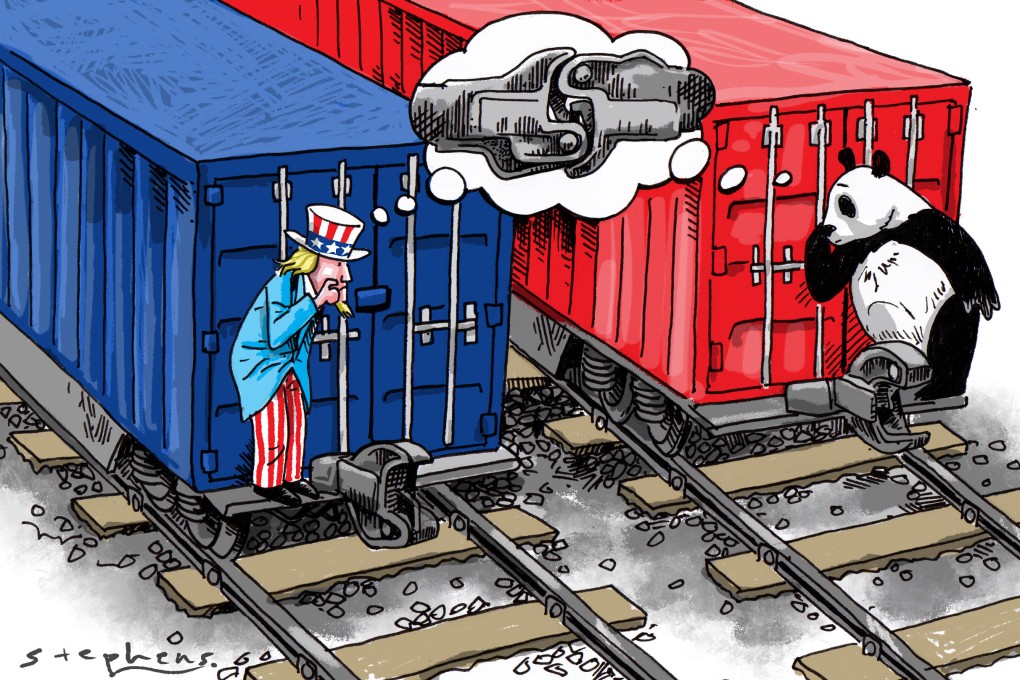Advertisement
Opinion | After all the talk of US-China decoupling, why ‘recoupling’ makes perfect sense now
- In some ways, this is moot as both economies continue to integrate in some markets and their policies start to converge around tighter regulation and antitrust actions
- But ‘recoupling’ can be useful if it means global pharmaceutical chains are left untouched, a minimum threshold is set for tech trade national security reviews, or the bilateral investment treaty is pursued
Reading Time:4 minutes
Why you can trust SCMP
9

Can “recoupling” be an option in managing the volatilities in China-US economic ties? US Trade Representative Katherine Tai raised the idea earlier this month at a talk to unveil the results of the Biden administration’s review of Trump- era China trade policies. Chinese ambassador Qin Gang picked it up a few days later. But, realistically, how can the two economies “recouple”? Is the catchphrase even useful?
Let’s begin by going over the metaphors used to describe policy orientations. In discussing a country’s economic governance, both coupling and decoupling can be acceptable options. But the notion of decoupling becomes complex, and even contentious, when applied to managing bilateral ties.
The amount of government bonds, trade and investment that one country has with another can be changed through policy intervention. But to what extent such change is sensible in terms of promoting national growth is debatable. After all, financial markets are fluid, trade diversion is natural, and non-financial investments are conditioned by matching production capacities.
Advertisement
The prevailing sentiment in China about actions by the United States and others on ties with China is mixed. There is a wish for ironclad ties, particularly in science and technology. But there is also a fear that, with imported technologies, China could end up hooked to a domineering or single source of supply.
China’s emphasis on indigenous innovation while encouraging international cooperation shows its sensitivity to an economic coupling that may be too tight in some areas.
In some ways, “recoupling” is redundant when it comes to mapping the dynamics of ties between the world’s two largest economies. A country’s foreign economic policy is an extension of its domestic governance philosophies. As I see it, since 2017, there has been convergence in the ideational aspects of domestic economic governance in both China and the US.
Advertisement
Select Voice
Choose your listening speed
Get through articles 2x faster
1.25x
250 WPM
Slow
Average
Fast
1.25x

